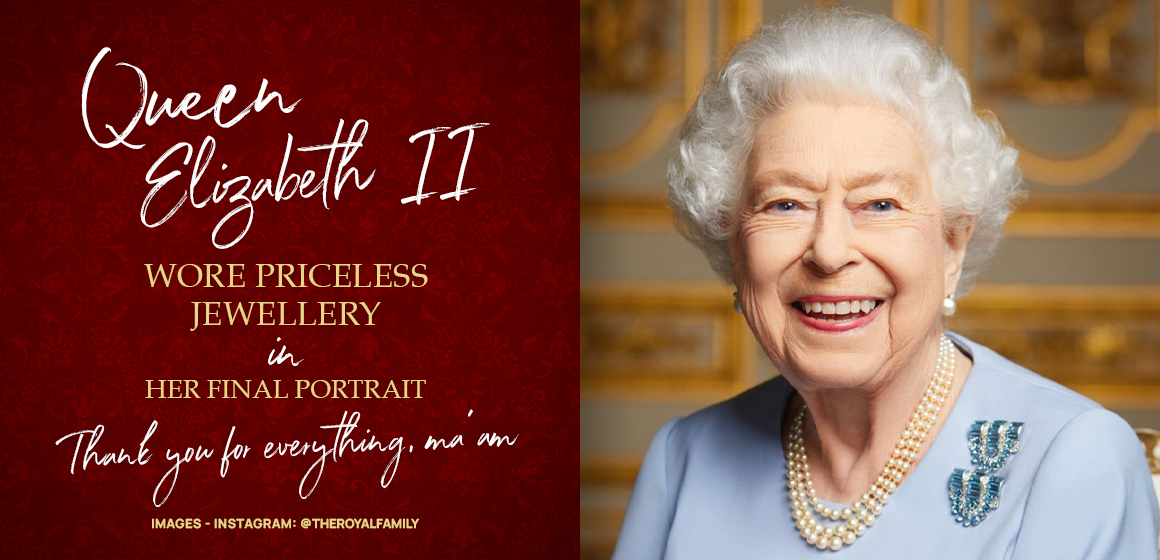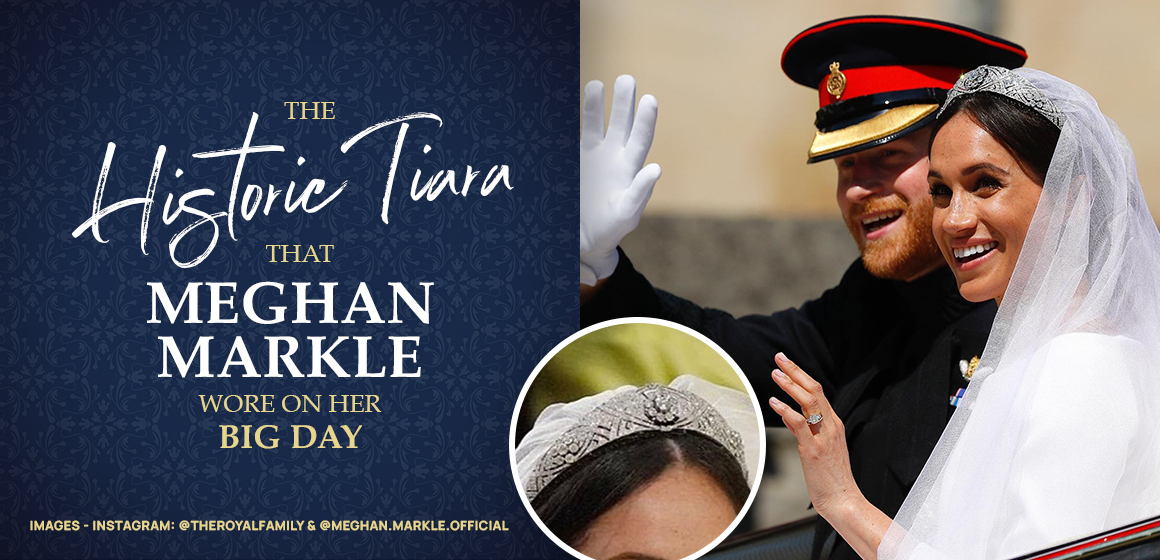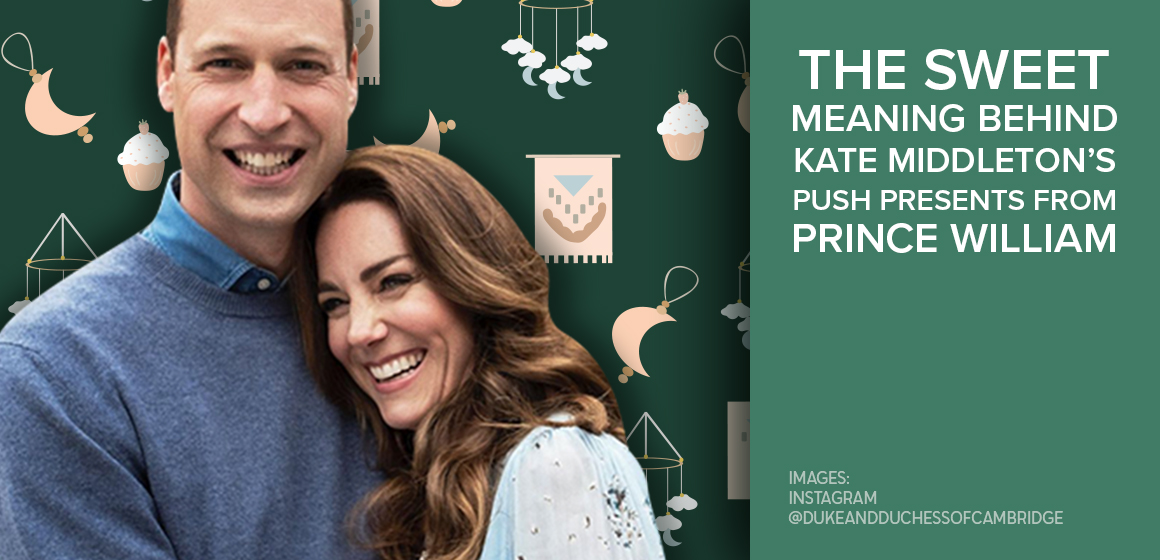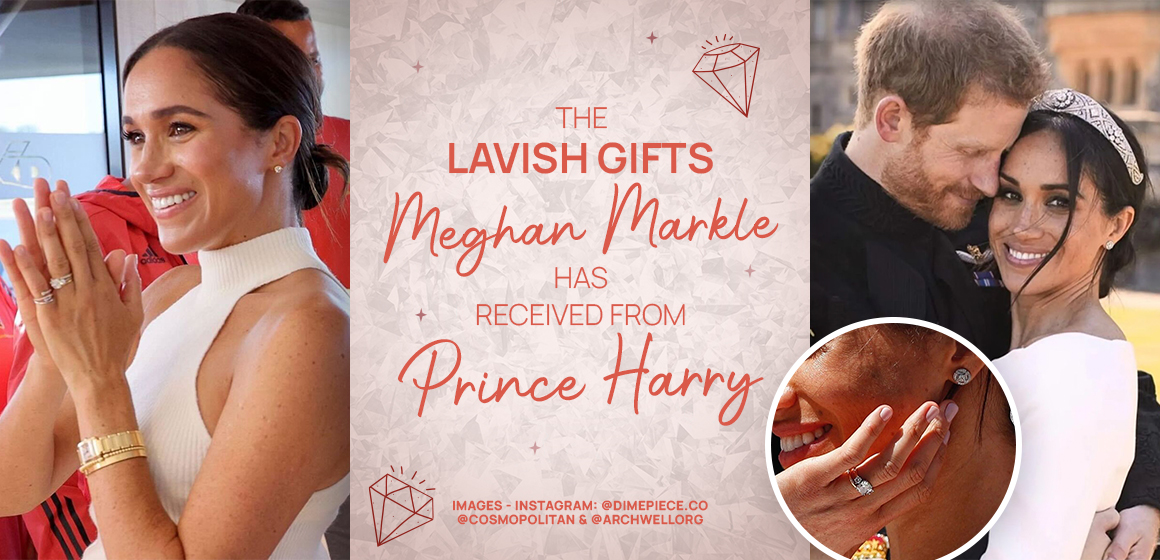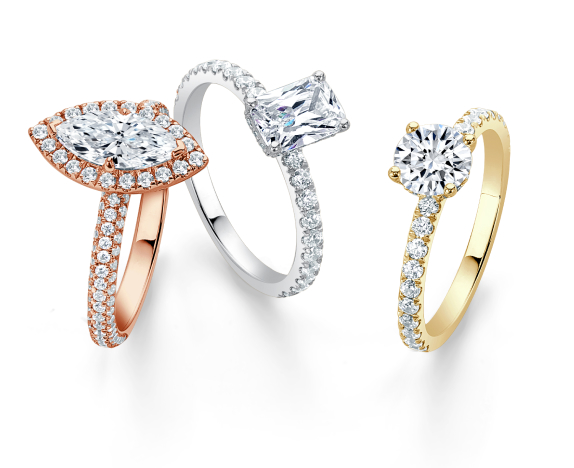During her 70 year reign, Queen Elizabeth II posed for an incredible number of official portraits.
Ranald Mackechnie photographed the late monarch at her Windsor Castle home in May 2022, ahead of the Platinum Jubilee celebrations. Released by Buckingham Palace a couple of weeks after her passing, the portait was sadly Queen Elizabeth II’s last.
The portrait shows the late monarch in a power blue suit, smiling from ear-to-ear – though its her jewellery that caught our eye. She’s wearing her signature three-strand pearl necklace and matching earrings. Pinned to her chest is an aquamarine brooch that belonged to her mother.
Fine jewellery and engagement ring experts at Steven Stone have revealed everything you need to know about them – including the sentimental story behind each piece.
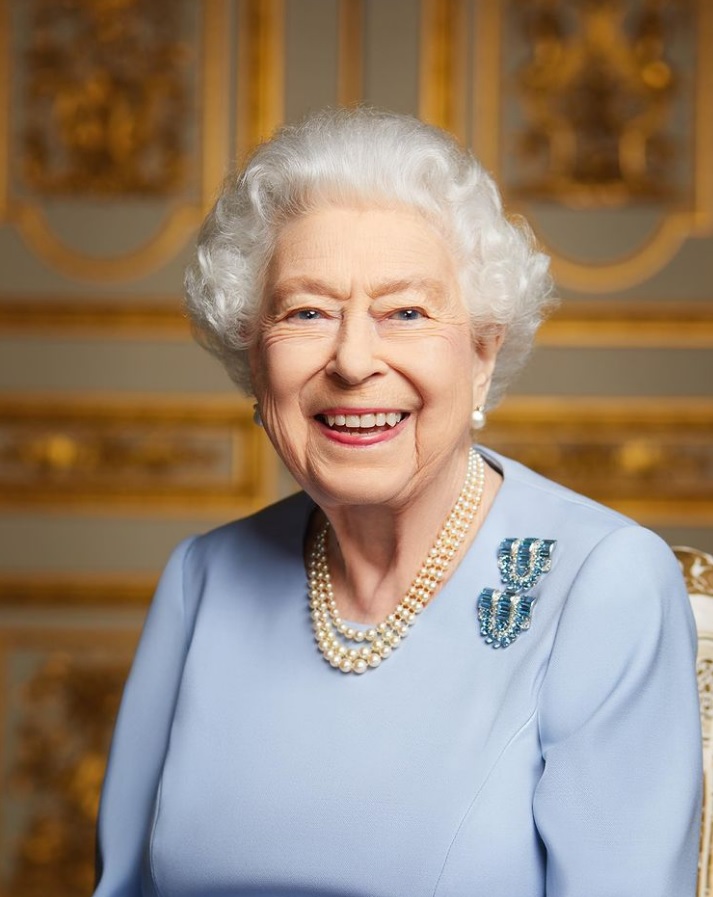
Aquamarine Brooch
Estimated value: £35,000
The Queen’s Aquamarine Brooch holds a special meaning as it was one of her mother’s brooches, which she wore a lot throughout the 1930’s and 1940’s when art deco style was a huge fashion trend – one of its first documented appearances was in 1939, when the Queen Mother wore the jewel to meet with President Lebrun of France at Windsor Castle
It contains a large emerald-cut aquamarine in the centre, which is surrounded by more perfectly symmetrical emerald and oval-cut aquamarines, dotted with diamonds.
It wasn’t until 12 years after her mother’s death that Queen Elizabeth II wore the brooch in public, until she stepped out at Royal Ascot with the colourful gem pinned to her jacket.
She also wore it last June at the annual Trooping the Colour event.
Three-Strand Pearl Necklace
Estimated Value: £600,000 to £1,000,000
Pearls have always had a connection with royalty, however Queen Elizabeth was especially known for her love of this radiant gemstone, wearing a pearl necklace for countless events and occasions. The Queen had an extensive collection of pearl necklaces, some with just one strand and others with three or four, however on most occasions, she wore a three-strand pearl necklace – and there’s a reason why.
Thanks to a tradition started by Queen Victoria, Queen Elizabeth is reported to have fallen in love with pearl jewellery when she was a child – Royal experts report that Queen Victoria gave each of her daughters and granddaughters a single pearl on their birthday as they grew up, so that by the time they reached the age of 18, they would have enough pearls for a necklace.
Queen Elizabeth’s parents continued the royal tradition, giving her a chain onto which they added two pearls per birthday. The Queen also received a complete pearl necklace from her father, King George VI for her coronation in 1937.
In February 2022, to kick off her 70th anniversary celebrations, Queen Elizabeth wore the three-strand pearl necklace that she’s wearing in her final portrait. One of our leading jewellery experts, Zack Stone commented: “One single natural pearl is worth around £3,000, and as the Queen has a three-strand necklace, this could be worth anywhere from £600,000 to £1,000,000.”
Pearl Earrings
Estimated Value: £10,000
Given to the Queen as a wedding present by her beloved grandmother Queen Mary in 1947, these diamond and pearl rub-over earrings were at the heart of the Queen’s personal jewellery collection, and travelled with her all over the world.
The most versatile of all the Queen’s jewels, the earrings effortlessly blend into any surroundings and were regularly worn by the late monarch throughout her adult life – featuring a single 12mm pearl with a small diamond on top, they were her earrings of choice when it came to daytime engagements.
“Queen Elizabeth had an impeccable wardrobe that included some impressive jewellery. The late monarch was rarely seen without some of her favourite jewellery pieces – a three-strand pearl necklace and a pair of pearl earrings.
All three pieces of jewellery worn in her final portrait have a family connection – the necklace was a gift from her father, King George VI, the earrings were a gift from her Grandmother, Queen Mary and the brooch originally belonged to her Mother. It’s incredibly touching that she continued to wear the pieces throughout her adult life and suggests that they were of great sentimental value to her.
With only a vague estimated value for the three-strand necklace, it’s hard to say how much the three pieces are worth collectively – it could be anything from £645,000 to £1,045,000.”
maxwell stone, creative director, steven stone
READ MORE: How the Royals have paid tribute to the Queen with their jewellery choices
READ MORE: The secrets of the Queen’s engagement ring
READ MORE: Queen Elizabeth’s 12 Most Iconic Jewellery Moments
READ MORE: 25 of the Queen’s most valuable brooches
READ MORE: The heart warming reason why Queen Elizabeth always wears a pearl necklace
Follow us on our socials
Pop over to our social platforms to keep up to date with Steven Stone’s latest jewellery content and news.
